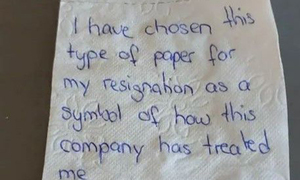러시아 위성국으로 후퇴해선 안 돼 영국의 마거릿 대처 총리가 1987년 4월에 모스크바와 트빌리시를 방문했다. 총리는 당시 방문을, 재임 중 가장 중요한 해외 방문이었다고 설명했다. 철의 여인 대처의 당시 방문으로 구소련체제에 생긴 금이 만천하에 드러났고 대처는 공산주의의 독재체제를 파괴하기 위해 레이건 미 대통령과 협력하기로 결심했다.
 |
| 루크 코피 美 헤리티지재단 연구원 |
그루지야는 아직도 갈 길이 멀기는 하지만 확실한 발전을 하고 있다. 북쪽의 이웃나라인 러시아는 뚜렷한 대조를 이룬다. 러시아의 민주적 자유는 퇴보하고 있으며 부패가 만연하고 미래는 암담하다. 블라디미르 푸틴이 이끄는 러시아는 사반세기 전 구소련에 나타났던 체제균열 현상을 보이기 시작하고 있다.
대처가 집권하기 전 영국은 유럽의 병자라고 불렸다. 오늘날 유럽은 세계의 병자가 되었다. 그러나 대처의 방식을 따른 정책목표 덕분에 그루지야는 경제를 자유화하고 관료체제를 줄이고 부패와 싸우며 확고한 경제발전을 이룩했다.
예를 들어, 그루지야의 정부 예산 적자는 2010년 국내총생산 대비 6.6%에서 2011년에는 3.7%로 내려갔다. 올해 경제성장은 5.5%로 예상된다. 헤리티지재단이 발표한 2012년 경제자유지수에서 그루지야는 184개국 중 34위에 올랐다. 이는 2003년 113위에서 크게 상승한 것이다.
그루지야는 프랑스, 스페인, 벨기에를 포함한 유럽의 26개국보다 더 많은 경제적 자유를 누리고 있다. 그루지야는 부패척결에도 큰 성과를 거두었다. 국제투명성위원회의 세계부패지수에서 그루지야는 부패척결 실적 1위의 국가로 평가받았다.
또한 그루지야는 아직 회원국은 아니지만 나토와 효과적인 공동작전을 실시하기 위해 대대적인 국방개혁을 실행했다. 뿐만 아니라 그루지야는 국내총생산의 근 4%를 국방예산으로 지출한다. 평균 1.6%를 지출하는 나토 회원국들은 그루지야를 본받을 필요가 있다.
샤카슈빌리는 자국과 러시아의 어려운 관계를 책임 있고 실용적인 방식으로 처리하고 있다. 그는 러시아가 점령한 자국 영토인 압하지아와 남오세티아에 대해 “무력 불사용” 공약을 했으나 러시아는 여전히 무력에 의존한다.
세계 경제 참여의 이점을 이해하는 그루지야는 얼마 전 러시아의 세계무역기구 가입을 지원하는 책임 있는 태도를 보여 주었다.
서방은 그루지야가 개혁의 길을 계속 가도록 격려하기 위해 많은 일을 할 수 있다. 우선 유럽 국가들은 러시아의 압하지아 및 남오세티아 점령에 공감하지 않는다는 것을 공식 표명할 필요가 있다. 러시아가 1만 명의 병력을 그루지야 영토의 20%에 상주시키는 것은 엄연한 점령이다.
그러나 대다수 유럽 국가들은 이에 대해 입을 다물고 있다. 영국과 다른 유럽 국가들은 프랑스와 미국에 가세하여 러시아의 불법 점령을 분명하게 비난하는 입장을 밝혀야 한다.
서방은 또한 방어용의 고성능 대전차 무기와 대공 무기를 트빌리시에 판매하는 것이 마땅하다. 그루지야는 발칸과 이라크 및 지금 아프가니스탄에서 서방의 믿을 만한 안보협력국가란 사실을 증명했다. 그루지야 군은 필요한 모든 방어용 무기를 구입할 자격이 있다.
그루지야는 유럽연합과 나토 회원국이 되기 위해서 이행해야 할 사항이 아직 많으나 진정한 가입절차가 진행되고 있다. 대처 총리가 1987년 트빌리시를 방문했을 때 몸소 보여준 본보기가 아직도 살아 있다.
미국의 대러시아 관계는 재조정이나 희망적인 생각에 바탕을 두고 추진될 수 없다. 만약 그루지야가 유럽의 가족으로 영입되지 않고 러시아의 위성국으로 후퇴하면 서방은 실수를 자초하는 꼴이 될 것이다.
루크 코피 美 헤리티지재단 연구원
워싱턴 타임스·정리=오성환 외신전문위원
Thatcherism still strong - in Tbilisi
By Luke Coffey
In April 1987, British Prime Minister Margaret Thatcher visited Moscow and Tbilisi on what she described as “the most fascinating and most important visit” she had made as prime minister. The Iron Lady’s visit fully revealed the cracks in the Soviet system and gave her the resolve to work with President Reagan to break the tyranny of communism.
Now, 25 years later, modern Georgia is implementing reforms that encapsulate Mrs. Thatcher’s belief in democracy, free markets, a strong defense and liberty. President Mikheil Saakashvili came to power after the peaceful 2003 Rose Revolution and has set his focus on gaining membership in the European Union and NATO. Though Georgia still has a long way to go, it is making solid progress. Its northern neighbor, Russia, provides a stark contrast. There, democratic freedoms are in retreat; corruption is endemic, and the future is bleak. Vladimir Putin’s Russia is starting to show the same cracks evident in the Soviet Union a quarter-century ago.
Before Mrs. Thatcher came into power, Britain was known as the sick man of Europe. Today, Europe is the sick man of the world. Yet thanks to its Thatcherite agenda of liberalizing the economy, cutting bureaucracy and fighting corruption, Georgia is making solid economic progress. For example, its budget deficit fell to 3.7 percent of gross domestic product (GDP) in 2011, from 6.6 percent a year earlier. Its economy is expected to grow 5.5 percent this year. The 2012 Index of Economic Freedom, published by the Heritage Foundation, ranked Georgia 34th out of 184 countries - a striking improvement from its 2003 ranking as 113th. Georgia enjoys greater economic freedom than 26 other European nations, including France, Spain and Belgium.
Georgia also has made significant progress in tackling corruption. Transparency International’s Global Corruption Barometer (2010) ranked Georgia first in the world in terms of improvement on that front.
Georgia also has implemented major defense reforms to ensure it can operate effectively alongside NATO - even though it is not yet a NATO member. Moreover, Georgia spends around 4 percent of GDP on defense - a level of investment NATO members (which spend on average only 1.6 percent) would do well to emulate.
While many NATO members have announced troop reductions in Afghanistan for 2012, Georgia has committed more troops to the mission this year - doubling its contribution in Helmand province. This will make Georgia the largest per capita troop-contributing nation in the International Security Assistance Force. This is not surprising. When Russia invaded Georgia in 2008, it was the second-largest troop contributor in Iraq, trailing only the United States. When it comes to defense, Georgia is a serious player.
Mr. Saakashvili has handled Georgia’s difficult relations with Russia responsibly and pragmatically. He has made a “nonuse of force” pledge regarding the occupied territories of Abkhazia and South Ossetia - something Russia has failed to do. Knowing the benefits of the global economy, Georgia also has demonstrated a responsible approach with the recent deal, clearing the way for Russian membership in the World Trade Organization.
The West can do much to encourage Georgia to stay on the road of reform. For starters, more European countries should show a little appreciation by formally declaring Russia’s occupation of Abkhazia and South Ossetia to be just that: an occupation. If 10,000 Russian troops permanently based on 20 percent of Georgia’s territory is not an occupation, what is? Yet most European nations have remained mute. The United Kingdom and other European partners should join France and the United States in a statement unequivocally condemning the illegitimate Russian occupation.
The West also should sell high-end defensive anti-tank and anti-aircraft weaponry to Tbilisi. Georgia has proved itself a reliable security partner in the Balkans, Iraq and now Afghanistan. Its military deserves all the defensive weaponry it needs. Georgians must have been puzzled to see Libyan rebels - some of them allegedly linked to al Qaeda - armed with the latest anti-tank weaponry while the West continues to deny Tbilisi the equivalent weapons. Furthermore, at the May 20-21 NATO Summit in Chicago, the alliance should reaffirm its support for eventual Georgian membership.
Georgia has a long way to go to fulfill its Euro-Atlantic ambitions, but real progress is being made. The principles that Margaret Thatcher epitomized when she visited Tbilisi in 1987 still ring true. U.S. policy toward Russia cannot be based on resets or wishful thinking. If Georgia slips back into Russia’s orbit instead of being drawn into the European family of nations, the West will have no one to blame but itself.
barometer:기압계, 지표 appreciation:공감, 감사 epitomize:완벽한 본보기다, 전형적으로 보여 주다
By Luke Coffey
In April 1987, British Prime Minister Margaret Thatcher visited Moscow and Tbilisi on what she described as “the most fascinating and most important visit” she had made as prime minister. The Iron Lady’s visit fully revealed the cracks in the Soviet system and gave her the resolve to work with President Reagan to break the tyranny of communism.
Now, 25 years later, modern Georgia is implementing reforms that encapsulate Mrs. Thatcher’s belief in democracy, free markets, a strong defense and liberty. President Mikheil Saakashvili came to power after the peaceful 2003 Rose Revolution and has set his focus on gaining membership in the European Union and NATO. Though Georgia still has a long way to go, it is making solid progress. Its northern neighbor, Russia, provides a stark contrast. There, democratic freedoms are in retreat; corruption is endemic, and the future is bleak. Vladimir Putin’s Russia is starting to show the same cracks evident in the Soviet Union a quarter-century ago.
Before Mrs. Thatcher came into power, Britain was known as the sick man of Europe. Today, Europe is the sick man of the world. Yet thanks to its Thatcherite agenda of liberalizing the economy, cutting bureaucracy and fighting corruption, Georgia is making solid economic progress. For example, its budget deficit fell to 3.7 percent of gross domestic product (GDP) in 2011, from 6.6 percent a year earlier. Its economy is expected to grow 5.5 percent this year. The 2012 Index of Economic Freedom, published by the Heritage Foundation, ranked Georgia 34th out of 184 countries - a striking improvement from its 2003 ranking as 113th. Georgia enjoys greater economic freedom than 26 other European nations, including France, Spain and Belgium.
Georgia also has made significant progress in tackling corruption. Transparency International’s Global Corruption Barometer (2010) ranked Georgia first in the world in terms of improvement on that front.
Georgia also has implemented major defense reforms to ensure it can operate effectively alongside NATO - even though it is not yet a NATO member. Moreover, Georgia spends around 4 percent of GDP on defense - a level of investment NATO members (which spend on average only 1.6 percent) would do well to emulate.
While many NATO members have announced troop reductions in Afghanistan for 2012, Georgia has committed more troops to the mission this year - doubling its contribution in Helmand province. This will make Georgia the largest per capita troop-contributing nation in the International Security Assistance Force. This is not surprising. When Russia invaded Georgia in 2008, it was the second-largest troop contributor in Iraq, trailing only the United States. When it comes to defense, Georgia is a serious player.
Mr. Saakashvili has handled Georgia’s difficult relations with Russia responsibly and pragmatically. He has made a “nonuse of force” pledge regarding the occupied territories of Abkhazia and South Ossetia - something Russia has failed to do. Knowing the benefits of the global economy, Georgia also has demonstrated a responsible approach with the recent deal, clearing the way for Russian membership in the World Trade Organization.
The West can do much to encourage Georgia to stay on the road of reform. For starters, more European countries should show a little appreciation by formally declaring Russia’s occupation of Abkhazia and South Ossetia to be just that: an occupation. If 10,000 Russian troops permanently based on 20 percent of Georgia’s territory is not an occupation, what is? Yet most European nations have remained mute. The United Kingdom and other European partners should join France and the United States in a statement unequivocally condemning the illegitimate Russian occupation.
The West also should sell high-end defensive anti-tank and anti-aircraft weaponry to Tbilisi. Georgia has proved itself a reliable security partner in the Balkans, Iraq and now Afghanistan. Its military deserves all the defensive weaponry it needs. Georgians must have been puzzled to see Libyan rebels - some of them allegedly linked to al Qaeda - armed with the latest anti-tank weaponry while the West continues to deny Tbilisi the equivalent weapons. Furthermore, at the May 20-21 NATO Summit in Chicago, the alliance should reaffirm its support for eventual Georgian membership.
Georgia has a long way to go to fulfill its Euro-Atlantic ambitions, but real progress is being made. The principles that Margaret Thatcher epitomized when she visited Tbilisi in 1987 still ring true. U.S. policy toward Russia cannot be based on resets or wishful thinking. If Georgia slips back into Russia’s orbit instead of being drawn into the European family of nations, the West will have no one to blame but itself.
barometer:기압계, 지표 appreciation:공감, 감사 epitomize:완벽한 본보기다, 전형적으로 보여 주다
[ⓒ 세계일보 & Segye.com, 무단전재 및 재배포 금지]
![[설왕설래] 해병대전우회](http://img.segye.com/content/image/2025/04/18/128/20250418500033.jpg
)
![[기자가만난세상] 지자체장 대선 경선行, 행정공백 우려](http://img.segye.com/content/image/2025/04/17/128/20250417521238.jpg
)
![[세계와우리] 美·中 극한 경쟁, 한국의 선택지는](http://img.segye.com/content/image/2025/04/17/128/20250417521375.jpg
)
![[조경란의얇은소설] 너무 늦기 전에](http://img.segye.com/content/image/2025/04/17/128/20250417521269.jpg
)








